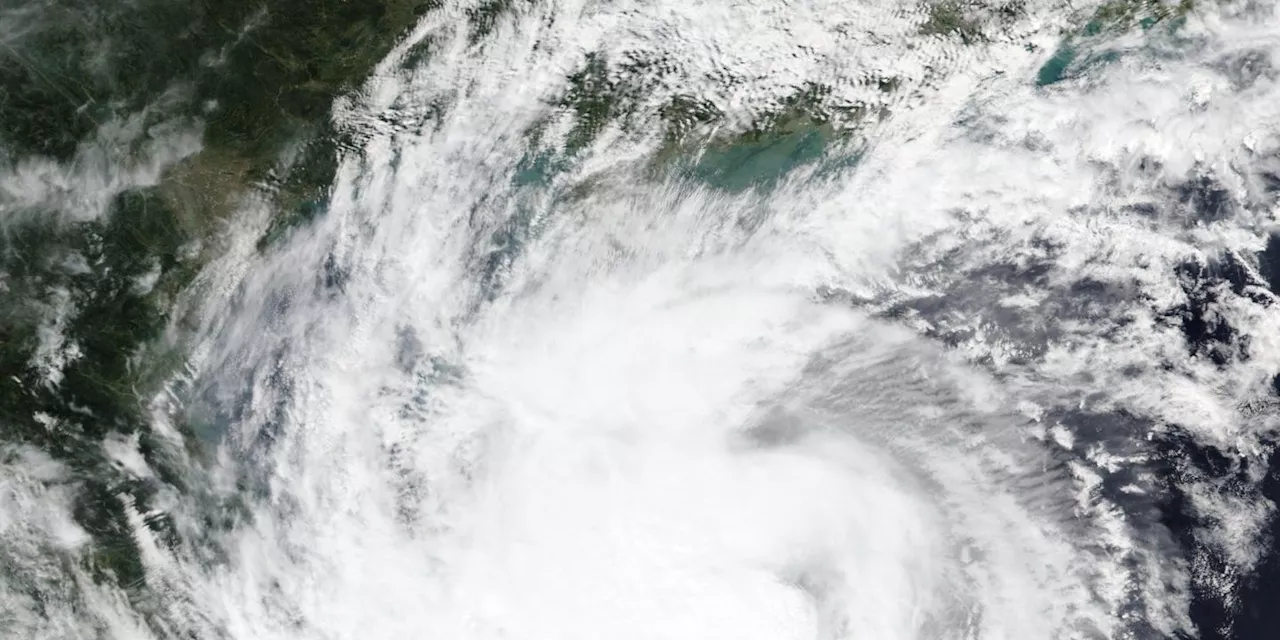This article provides practical advice on how to prepare for a potential recession, focusing on creating a survival budget, managing unemployment benefits, exploring alternative income sources, and building a robust emergency fund. It emphasizes the importance of proactive planning and resourcefulness in navigating economic uncertainty.
Since Mr. Trump started making his tariff threats, economists have been scrambling to estimate the impact on our economy. The results are dire. Ontario Premier Doug Ford’s office recently estimated that as many as 500,000 jobs could be lost in that province alone. This would drive unemployment in Canada’s most populous province above 10 per cent.
So now’s the time we should all look at our household finances and ask ourselves a hard question: will you be okay if you or your spouse loses their job? The first step in preparing for a recession is to create a survival budget. You start by going through your current budget, line by line, and asking: can I pause this if I lose my job? Luxury spending such as vacations should be the first to go. Eating out and entertainment should also be eliminated. Cancelling or downgrading any subscription services that aren’t mission critical, such as premium cellphone plans or cable TV, would also be a good move. Remember, you aren’t actually making any changes yet. You’re creating a plan for what to do in case you lose your job. If that doesn’t happen, you don’t have to do anything, but it’s important to be aggressive with these potential cuts because the lower your survival budget is, the easier the next steps will be. If you lose your job through no fault of your own, you are generally eligible for Employment Insurance (EI) benefits. How much you get depends on how many hours you’ve worked in the past 52 weeks and your salary, as well as the unemployment rate in your region at the time that you file. If you’ve been working full-time for the past year (40 hours a week) and earn at least $65,700 a year, you can expect to receive the maximum EI benefit of $695 per week, or $2,780 a month. Because of how tariffs work, they will affect entire industries at once. That means that if you work in one of those affected industries and you lose your job, you likely won’t be able to simply jump into another company because they will also be hit by the same tariffs. So you’ll need to get creative with your job hunt. Are there any related fields to which your skills can be transferred that won’t be affected by these tariffs? Is it possible to do your job remotely? Remote jobs can potentially evade tariffs if they’re located in another country. You may want to browse a site like Upwork, a job posting site that specializes in remote jobs. Use the sharing economy to your advantage. If you’re a homeowner and have an extra bedroom, consider hosting travellers on Airbnb. Remember, Airbnb started in 2008, during another financial crisis, to give laid-off workers a way to make ends meet by renting out a spare bedroom. Similarly, if you own a car, consider renting it out on Turo. You should have enough in your emergency fund to cover at least six months of living expenses. The purpose of the fund is to buy you time to find a new job, so the bigger it is, the better you’ll be able to weather whatever storm is headed our way. The minimum size of your emergency fund should be calculated like so: emergency fund=(monthly survival budget – EI – alternative monthly income) x 6. This is why it’s so important to be as aggressive as you can in crafting your survival budget. The lower your monthly needs are in a recession, the less money you need in your emergency fund to pay for six months of it. Similarly, the higher your EI benefits and the alternative monthly income you can create, the lower your emergency fund needs to be. Get creative, because every little bit helps. Just like we all check our fire extinguishers and smoke alarms in the hope we never need them, a recession survival budget is something we all wish we’ll never need to use. But with storm clouds gathering from the south, now’s the time to make sure your survival plan is in tip-top shape
Economics Recession Financial Planning Budget Emergency Fund Unemployment Benefits Job Search Sharing Economy
Canada Latest News, Canada Headlines
Similar News:You can also read news stories similar to this one that we have collected from other news sources.
 Road Salt Threatens Salmon Survival in British ColumbiaA new study from the University of British Columbia suggests that high levels of road salt in B.C. streams can be fatal to young salmon and cause deformities.
Road Salt Threatens Salmon Survival in British ColumbiaA new study from the University of British Columbia suggests that high levels of road salt in B.C. streams can be fatal to young salmon and cause deformities.
Read more »
 Liverpool vs. Manchester United: A Tale of Two ClubsLiverpool dominates the Premier League while Manchester United struggles for survival.
Liverpool vs. Manchester United: A Tale of Two ClubsLiverpool dominates the Premier League while Manchester United struggles for survival.
Read more »
 Orca Tahlequah Loses Another Newborn, Highlighting Precarious Survival RatesTahlequah, a Southern Resident killer whale, recently lost her newborn calf, J61, marking the second loss of a female calf for the grieving mother. Researchers and the Center for Whale Research observed Tahlequah carrying the calf's body, reminiscent of her 2018 experience with a previous stillbirth. This tragic event underscores the concerning survival rates of the Southern Resident killer whale population.
Orca Tahlequah Loses Another Newborn, Highlighting Precarious Survival RatesTahlequah, a Southern Resident killer whale, recently lost her newborn calf, J61, marking the second loss of a female calf for the grieving mother. Researchers and the Center for Whale Research observed Tahlequah carrying the calf's body, reminiscent of her 2018 experience with a previous stillbirth. This tragic event underscores the concerning survival rates of the Southern Resident killer whale population.
Read more »
 Marmot Basin's Survival After Wildfire Boosts Alberta Community Morale and EconomySix months after the 2024 Jasper wildfire threatened Marmot Basin ski area, its reopening is providing a much-needed boost to both the local economy and the morale of the recovering community within Jasper National Park. While the ski area escaped direct damage thanks to firefighting efforts and natural geography, significant challenges remained. Debris, power outages, and staff accommodations damage hampered reopening efforts. However, Marmot's management refused to close, recognizing the vital role downhill skiing and snowboarding play in Jasper's winter economy. The ski area opened on November 22, 2024, after a concerted effort by staff, Parks Canada, and ATCO Electric to restore power and clear access roads. Although visitor numbers remain below pre-wildfire levels, Marmot's reopening is a symbol of resilience and a crucial step in Jasper's recovery.
Marmot Basin's Survival After Wildfire Boosts Alberta Community Morale and EconomySix months after the 2024 Jasper wildfire threatened Marmot Basin ski area, its reopening is providing a much-needed boost to both the local economy and the morale of the recovering community within Jasper National Park. While the ski area escaped direct damage thanks to firefighting efforts and natural geography, significant challenges remained. Debris, power outages, and staff accommodations damage hampered reopening efforts. However, Marmot's management refused to close, recognizing the vital role downhill skiing and snowboarding play in Jasper's winter economy. The ski area opened on November 22, 2024, after a concerted effort by staff, Parks Canada, and ATCO Electric to restore power and clear access roads. Although visitor numbers remain below pre-wildfire levels, Marmot's reopening is a symbol of resilience and a crucial step in Jasper's recovery.
Read more »
 Stronger Muscles, Longer Lifespans: Study Finds Physical Fitness Key to Cancer SurvivalA recent study reveals that maintaining muscle strength and cardiovascular fitness can significantly reduce the risk of death from cancer, even in advanced stages. The research suggests that physical activity could be a powerful tool in the fight against cancer, alongside traditional treatments.
Stronger Muscles, Longer Lifespans: Study Finds Physical Fitness Key to Cancer SurvivalA recent study reveals that maintaining muscle strength and cardiovascular fitness can significantly reduce the risk of death from cancer, even in advanced stages. The research suggests that physical activity could be a powerful tool in the fight against cancer, alongside traditional treatments.
Read more »
 Climate Pundits Prepare for 2024's Hottest YearThe New Year brings the annual accounting of global events, and climate change is a major talking point. Experts predict 2024 will be the hottest year on record, emphasizing the need for immediate and drastic cuts in greenhouse gas emissions. However, achieving such a rapid shift away from fossil fuels faces significant hurdles, as demonstrated by the lack of public demand for change even in the face of extreme weather events like the Philippines' recent cyclone onslaught.
Climate Pundits Prepare for 2024's Hottest YearThe New Year brings the annual accounting of global events, and climate change is a major talking point. Experts predict 2024 will be the hottest year on record, emphasizing the need for immediate and drastic cuts in greenhouse gas emissions. However, achieving such a rapid shift away from fossil fuels faces significant hurdles, as demonstrated by the lack of public demand for change even in the face of extreme weather events like the Philippines' recent cyclone onslaught.
Read more »
